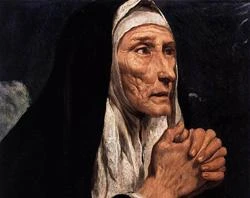Lord Hannan of Kingsclere was a Conservative MEP from 1999 to 2020 and is now President of the Institute for Free Trade.
Here is an argument that almost no one is prepared to make, despite almost everyone knowing it to have some force: The removal of the hereditary peers will undermine the civility of the Upper House, leaving it like any other partisan legislative chamber and damaging its effectiveness.
People don’t like to advance that claim for fear of coming across as snobbish or forelock-tugging. The argument leaves itself open to caricature. “So are you saying that commoners don’t know how to behave? That we should all defer to Lord Boodle, who’s a drug addict, or Viscount Coodle, who’s the rudest man in London, or the Earl of Doodle who’s on his way to prison?”
The last remaining 87 hereditary peers (five hereditary by-elections have been put on ice since Labour came to office) look almost certain to be booted out when Parliament returns after the summer. The only remaining negotiations, as far as I can see, are about whether any of them might be spared, in the sense of being made life peers in their own right.
The Conservatives are alone in opposing the change, advancing strong and sincere but doomed arguments.
They assert, correctly, that Labour is breaking a promise, that 92 hereditary peers were left in place in 1998 as part of a solemn agreement, that they were supposed to go only when a democratic Upper House replaced them. They maintain that Labour is behaving in a nakedly partisan way, that its manifesto promised to remove not only the hereditaries but also the bishops and peers over the age of 80, but that the second and third elements of this promise were dropped when party managers realised that they would reduce the Left-wing vote.
They maintain that in no other democracy could the composition of one of the two legislative chambers be altered by a simple vote. All true; and all, given the size of Labour’s majority, beside the point.
So let me make the case that no one is prepared to make, the case that risks sounding Uriah-Heepish, but that even Labour peers, deep down, know to have at least a modicum of merit. The presence of a bloc of disinterested peers raises the tone of the place.
The hereditaries are not there as a reward for ministerial service or in recognition of political donations or because they wanted a title. They are there from a sense of patriotism. Obviously, people can have different ideas of patriotism, and the hereds are as prone to get things wrong as anyone else. But, when they do, it is not from self-interest or partisanship.
This matters in a polarised political landscape, where people readily attribute the blackest motives to the other side. Having a few dozen people who are independent-minded, more interested in what is being said than in whether they like the person saying it, sets a courteous tone. Their presence (and their attendance rate is far higher than that of the lifers) encourages others to rein in their tribal instincts.
Politics is a factional business.
Hence the vituperative tone common in other legislative chambers. Even Cross Benchers can be prone to us-and-them thinking. Some of them arrived by, in effect, applying for the job. Others are bound by tribalisms of their own – as, for example, retired civil servants. But the hereditaries are, at least in this sense, plucked randomly from the population, aware that their presence is contested, and determined to justify it by being polite, helpful and diligent.
They therefore take on the thankless, workaday tasks that lifers are too grand or too busy to do. They serve on committees that deal with maintenance, catering and the like. They sit as Whips – surely the worst job in politics. They are found waiting patiently until their amendment is called at 11.30pm to replace “will” with “may”.
Does any of this matter in an age when the hereditary principle has been deemed redundant (except, for some reason, in the monarchy)? Probably not. No one much cares about the effectiveness of a revising chamber.
Still, I can’t help feeling that there was a more equitable solution, one that would have given Labour its majority while retaining both the civility of the House and the link back to the council of bishops and barons called into being by Magna Carta.
What if we had simply removed the right of hereditary peers to vote, and made no other change?
Let them, in other words, sit on committees, speak in debates, move amendments, even serve as party leaders – but not vote. The democratic objection would have been addressed, the balance in the division lobbies would have swung back to Labour and we would have been spared the anomaly of a House of Lords that contains no Lords, at least not in the sense that that word was understood for the previous millennium. We might have resumed the by-elections and considered the matter closed.
Ah, well. Of all sad words of tongue or pen, the saddest are these: “It might have been!”





![ICE Arrests Illegal Alien Influencer During Her Livestream in Los Angeles: ‘You Bet We Did’ [WATCH]](https://www.right2024.com/wp-content/uploads/2025/08/ICE-Arrests-Illegal-Alien-Influencer-During-Her-Livestream-in-Los-350x250.jpg)
![Gavin Newsom Threatens to 'Punch These Sons of B*thces in the Mouth' [WATCH]](https://www.right2024.com/wp-content/uploads/2025/08/Gavin-Newsom-Threatens-to-Punch-These-Sons-of-Bthces-in-350x250.jpg)








